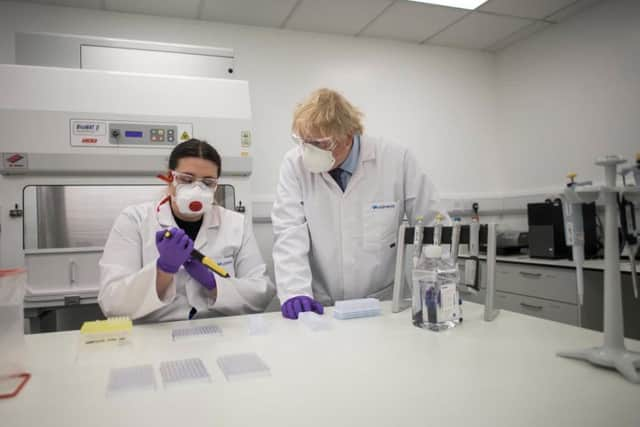Coronavirus in the UK: Clinical trial to begin to test Covid vaccine efficacy among children
Researchers will use 300 volunteers to assess whether the jab - known as the ChAdOx1 nCoV-19 vaccine - will produce a strong immune response in children aged between six and 17.
The Oxford jab is one of three to have been approved for use in adults in the UK, along with those from Pfizer/BioNTech and Moderna.
Advertisement
Hide AdAdvertisement
Hide AdAndrew Pollard, professor of paediatric infection and immunity, and chief investigator on the Oxford vaccine trial, said: "While most children are relatively unaffected by coronavirus and are unlikely to become unwell with the infection, it is important to establish the safety and immune response to the vaccine in children and young people as some children may benefit from vaccination.


"These new trials will extend our understanding of control of SARS-CoV2 to younger age groups."
The first vaccinations under the trial will take place this month, with up to 240 children receiving the vaccine and the others receiving a control meningitis jab.
Earlier this week, England's deputy chief medical officer said "several" trials were under way to develop vaccines that are safe and effective in children.
Professor Jonathan Van-Tam told ITV News: "It is perfectly possible that we will have some licensed children's vaccines for Covid-19 by the end of the year."
The Royal College of Paediatrics and Child Health has said there is evidence Covid-19 can cause death and severe illness in children, but that this is rare.
It said: "In children, the evidence is now clear that Covid-19 is associated with a considerably lower burden of morbidity and mortality compared to that seen in the elderly.
"There is also some evidence that children may be less likely to acquire the infection. The role of children in transmission, once they have acquired the infection, is unclear, although there is no clear evidence that they are any more infectious than adults."
Advertisement
Hide AdAdvertisement
Hide AdThe University of Oxford said theirs was the first trial in the 6-17 age group. It said other trials had begun but only measuring efficacy in those aged 16 and 17.
Reporting by PA
A message from the Editor:Thank you for reading this article. We're more reliant on your support than ever as the shift in consumer habits brought about by Coronavirus impacts our advertisers.
If you haven't already, please consider supporting our trusted, fact-checked journalism by taking out a digital subscription.
Comments
Want to join the conversation? Please or to comment on this article.